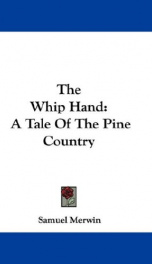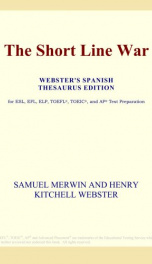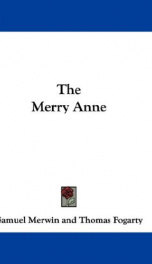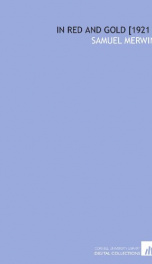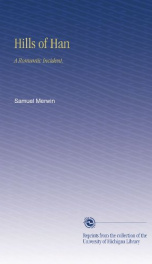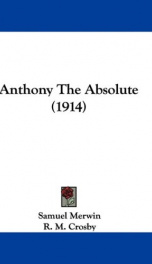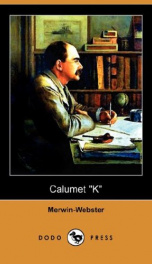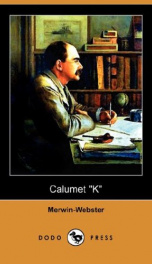henry is twenty a further episodic history of henry calverly 3rd
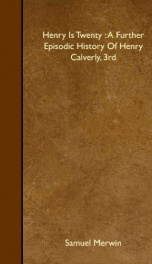
HENRY IS TWENTY A Further Episodic History of Henry Calverly - IT would be ungracious to let this book go out into a preoccupied world without some word of gratitude to those who have written regarding the young Henry as he has appeared from month to month in a magazine. The letters have been the kindliest and most stimulating imaginable and have surprised me, for I have never found it easy to picture Hehry as a popular hero of fiction. He isnt, of course, a hero at all. His weaknesses are too plain-the little evidences of vanity in him, his selfcentred moments, his errant susceptibilities-and heroes cant have weaknesses. And heroes-in any well-regulated pattern-story-must turn out well. Henry, in this book, doesnt really turn out at all. His success in Episode X is a rather alarming accident. I think hell do well enough, when hes forty or so. At twenty, no. He has huge doses of lifes medicine yet to swallow. And all his problems are complicated by the touch of genius that is in him. Another thing there couldnt have been a JIamie Wilcox in our pattern-story. And certainly not a Corinne. Hardly even a Rfartha. For a divided love interest destroys your pattern. Yet Marthas, Corinnes, Mamies occur everywhere. So I cant very well apologise for their presence here. IVe might, of course, have had Henry overthrow the Old Cinch in Sunbury clean up the town. But he didnt happen to be a St George that summer. And then, so many heroes of pattern-storiks, these two decades, have slain municipal dragons He might have listened in a deeperlhumility to the worldly wisdom of Uncle Arthur. But he didnt. He had to live his own life, not Uncle Arthurs. His way was the harder, but he couldnt help that. I would have liked to pursue further the Mildred-Humphrey romance including Arthur V. and the curious triangle that resulted but the crisis didnt come in that year. And against the temptation to dwell with Madame Watt and her husband I have had, here, to set my face. Though something of that story will be told in a book yet to come, dealing with an older, changed Henry. The richly dramatic career of hiadatne underlay the irony of Henrys marriage and we shall have to deal with that, or at least with the events that grew out of it. I have said that Henry would turn out well enough in time. From the angle of the pattern-story this obviously couldnt be. It would be said that if he was ever to succeed he should have got started by this time in habits of industry and so forth. I wont say that this is nonsense, but instead trill quote from the autobiography of Charles Francis Adarns Houghton Jiifflin Company, 1916. lir Adams, from his fifteenth to his twenty-fifth ycar, kept a diary. Then he sealed the volumes in a package. Thirty years later he opened the package and read every word. He says -- The revelation of myself to myself was positively shocking. . . . It wasnt that the thing was bad or that my record was discreditable it was worse I It was silly. That it was crude, goes without saying. That I didnt mind I But I did blush and groan and swear over its unmistakable, unconscious immaturity and ineptitude, its conceit, its weakness and its cant. . . . As I finished each volume it went into the fire and I stood over it until the last leaf was ashes. . . . I have never felt the same about myself since. I now humbly thank fortune that I have got almost through life without making a conspicuous ass of mysclf. 31r Adams, immediately after the period covered by the diary, plunged into the Civil Var, and emerged with the well-earned brevet rank of brigadier-general. He was later eminent as publicist, author, administrator, a recognised leader of thought in a troublous timc...
Info about the book
Author:
Series:
Unknown
ISBN:
0262134934
Rating:
5/5 (8)Your rating:
0/5
Languge:
English
Users who have this book
Users who want this book
What readers are saying
What do you think? Write your own comment on this book!
write a commentGenre
if you like henry is twenty a further episodic history of henry calverly 3rd try:
Do you want to exchange books? It’s EASY!
Get registered and find other users who want to give their favourite books to good hands!

